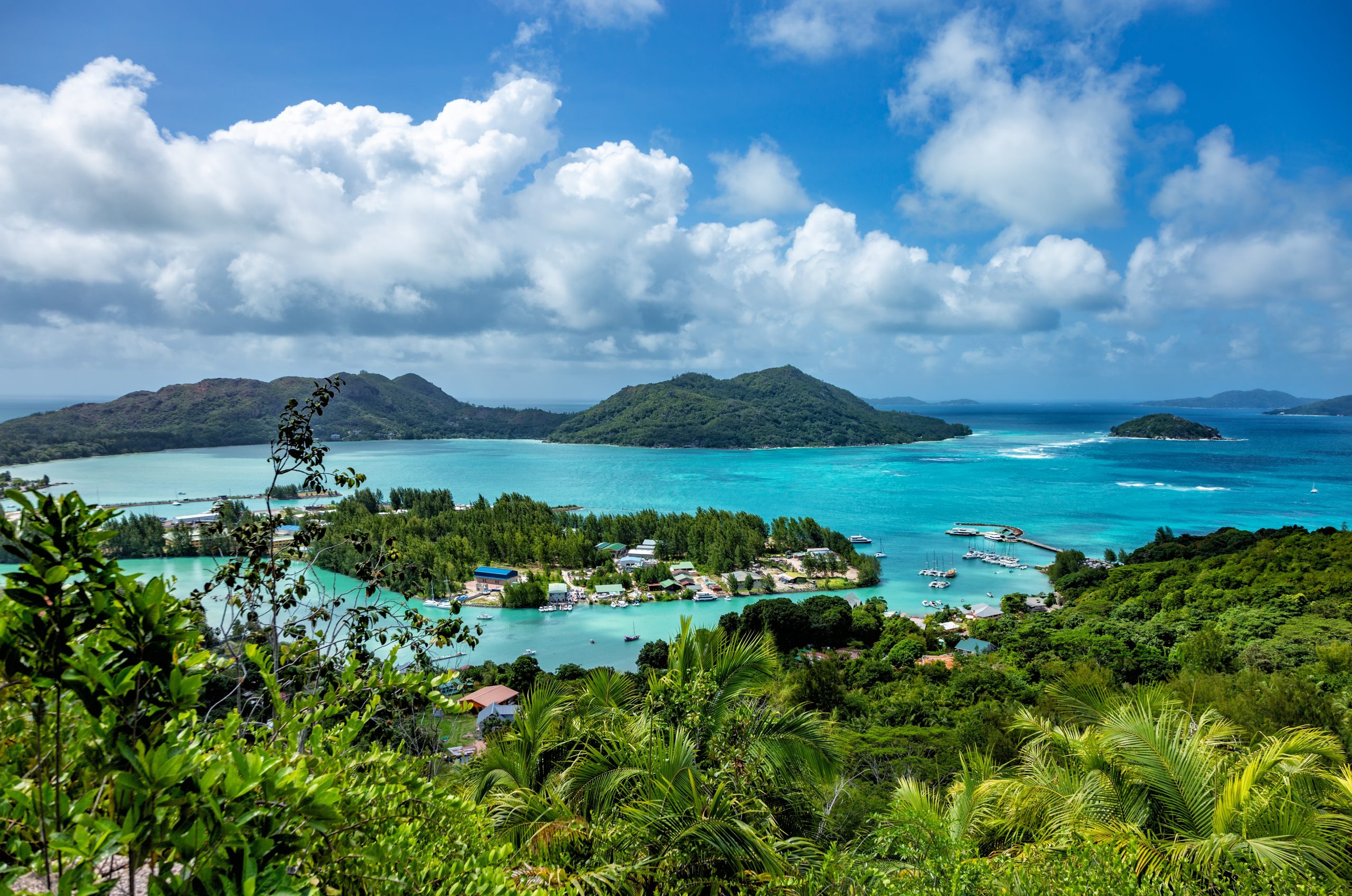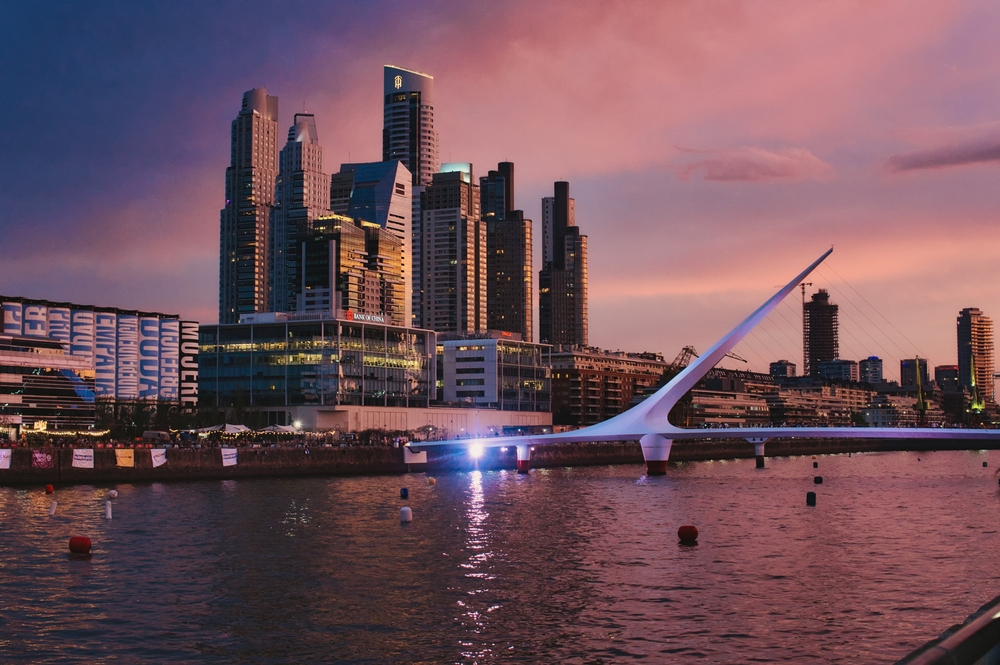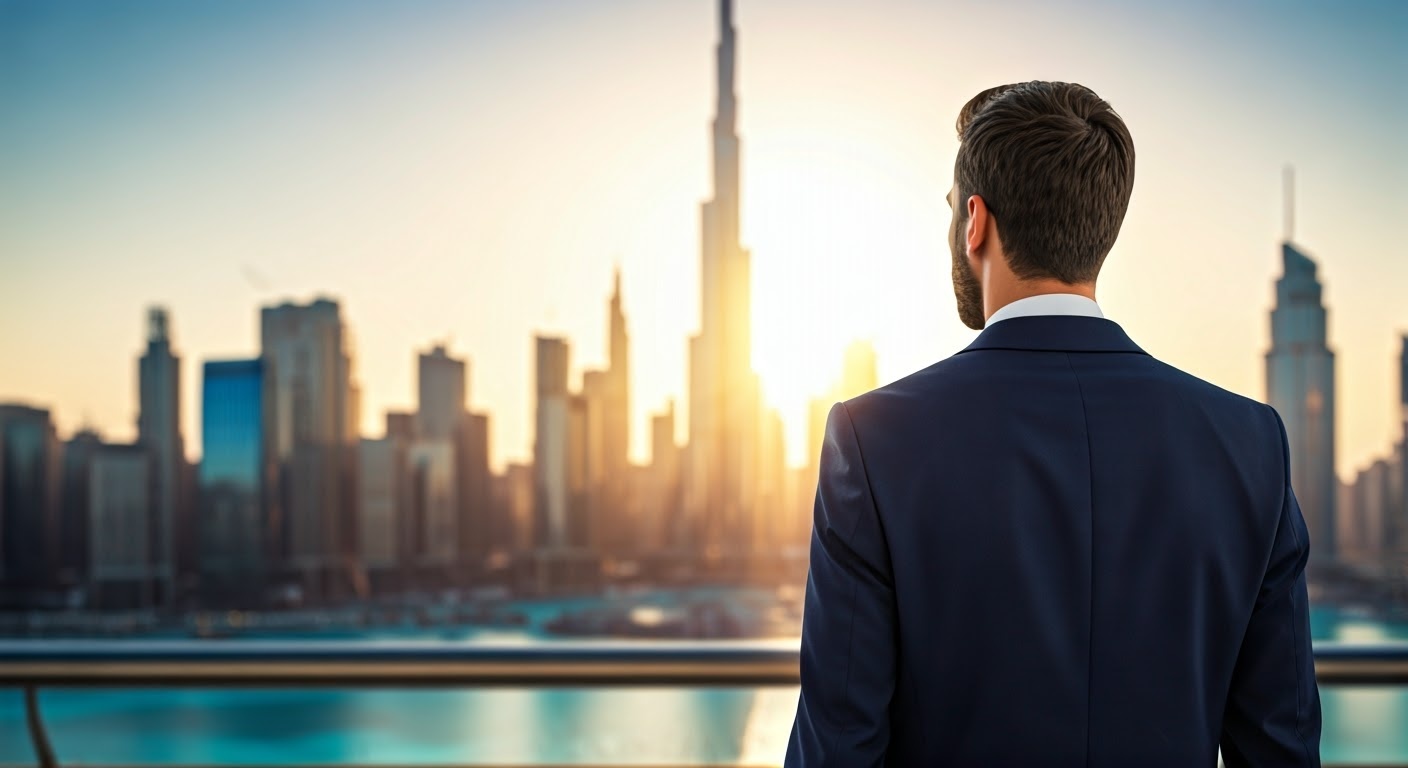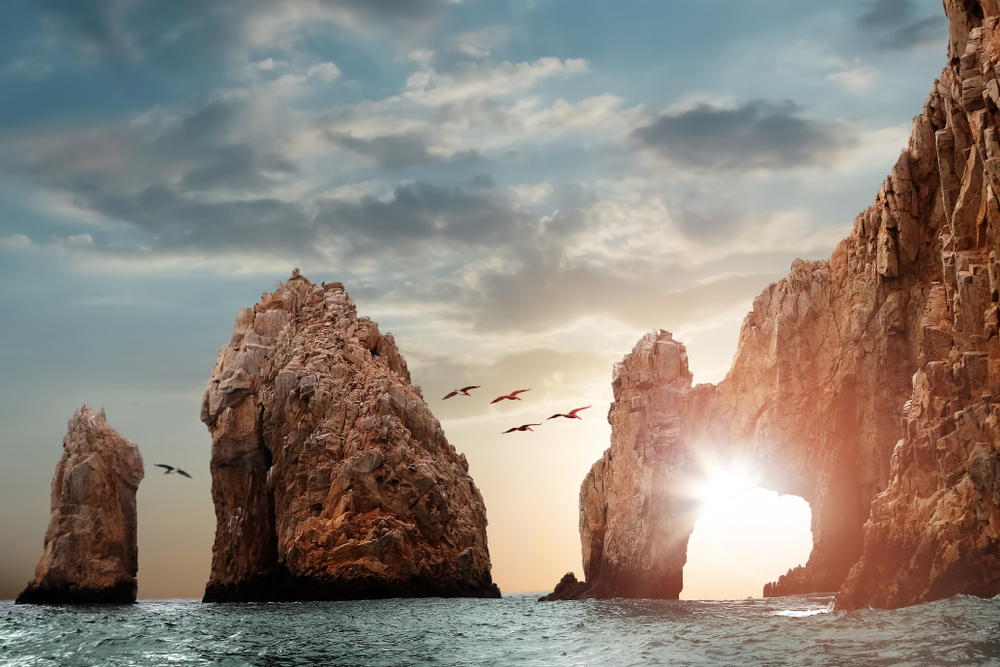Safest Countries in Africa: Top Places to Live & Invest

- Understanding Safety Rankings in African Nations
- Top 10 Safest African Countries for Expats and Investors
- Investment Opportunities in Africa's Safest Countries
- Living Standards in Safe African Nations
- Citizenship by Investment in Safe African Countries
- Safety Comparison: Major African Cities for Expatriates
- Need Help?
When most people think about Africa, safety isn’t always the first word that comes to mind—and that’s exactly the problem. Outdated narratives and headlines often overlook the continent’s rising stars: countries with growing economies, strong governance, and stable, welcoming environments. If you’re an expat, investor, or just someone seeking a change of scenery, it’s time to look past the noise and focus on facts.
In this guide, we’re breaking down the safest countries in Africa—places that offer not only security, but also lifestyle appeal, investment potential, and long-term opportunity. Whether you’re thinking about setting up a business, buying property, or just looking for a peaceful place to live, Africa has more to offer than you might expect.
Understanding Safety Rankings in African Nations
Key Safety Indicators
So, how do we define “safety”? It’s not just about crime statistics—although those are certainly important. Safety encompasses everything from political stability and low corruption levels to reliable healthcare, infrastructure, and law enforcement. When we evaluate the secure African nations, we look at multiple layers:
- Crime rates – both petty and violent crime
- Political stability – frequency of unrest or government turnover
- Rule of law – how well laws are enforced, and whether residents feel protected
- Transparency and governance – including levels of corruption
- Resilience to climate and economic shocks – crucial for long-term stability
These aren’t abstract ideas—they directly shape the day-to-day lives of residents and the confidence of investors.
What matters most is consistency. You want to be in a country where systems work, decisions are predictable, and you don’t need to worry about sudden shifts in policy or leadership. That’s what separates the top-tier safe African countries to live from the rest.
International Security Indexes
If you want numbers, there’s no shortage of global reports to dig into. The Global Peace Index, World Governance Indicators, and Africa Safety Index are just a few of the international frameworks that measure safety in African nations. While rankings fluctuate slightly year by year, certain countries consistently perform well across the board—and that’s what we’ve focused on in this guide.
Take Rwanda, for example. It regularly ranks among the safest countries in Africa, with low crime, clean streets, and an efficient government. Mauritius? It’s not just a beach paradise—it’s a jurisdiction with strong legal protections and financial transparency, making it a favorite among HNWIs and digital nomads alike.
These indexes measure:
- Homicide and violent crime rates
- Access to law enforcement and justice
- Domestic and international conflict
- Political instability
- Public trust in institutions
We don’t just rely on one source—we cross-reference multiple global reports to get a clearer picture of which African investment destinations offer not only profitability but peace of mind.
Quality of Life Factors
Let’s be honest—feeling safe isn’t just about numbers. It’s about how a place makes you feel. Do you walk around at night with ease? Can you get reliable healthcare when you need it? Are public services functional? Can you raise a family, build a business, and enjoy your life without constant concern?
These are the real questions expats and investors are asking. And they matter just as much as tax rates or GDP growth.
In many of the stable African economies, especially the ones we’ll explore in this guide, you’ll find a growing middle class, modern infrastructure, private healthcare options, international schools, and strong expat communities. These countries aren’t just safe—they’re livable.
And here’s the bonus: in several of these places, your dollar (or euro) goes a lot further. Think beachfront property for half the price of Europe, or a luxury apartment in the heart of a peaceful city at a fraction of what you’d pay in North America. When safety meets opportunity, that’s where smart decisions happen.
The bottom line? Safety is not a one-dimensional metric. It’s a blend of data and lived experience. It’s about where you’ll feel confident living, working, and investing long-term. And as you’ll see in the next sections, the safest countries in Africa are also some of the most promising places on the continent to build your future.
Top 10 Safest African Countries for Expats and Investors
When you think of safety in Africa, it’s not about avoiding risk—it’s about identifying the countries where smart governance, community cohesion, and long-term planning create places you can actually build a life (and a portfolio). From island paradises to emerging hubs, these are the safest countries in Africa that are not only peaceful, but packed with opportunity.
Rwanda: Africa’s Rising Star for Safety and Investment
Let’s start with the country that’s redefining the narrative. Rwanda ranks consistently high on the Africa safety index, with low crime, modern infrastructure, and a government that takes security seriously. The streets of Kigali are clean, patrolled, and surprisingly calm—even at night.
Rwanda is also a blueprint for stable African economies. It’s business-friendly, digitized, and pro-investment. The government’s “Made in Rwanda” push is boosting local manufacturing, and sectors like real estate, fintech, and tourism are wide open. Add in the country’s strategic East African location and growing diplomatic ties, and it’s clear: Rwanda is more than just safe—it’s ready for serious investors.
Botswana: Diamond of African Stability
Botswana is one of Africa’s most stable democracies, with decades of political consistency and a reputation for clean governance. Crime rates are low, especially in the capital Gaborone, and law enforcement is strong and relatively free of corruption.
It also happens to be one of the continent’s most resilient economies. Fueled by diamond exports but backed by strong fiscal management, Botswana offers long-term confidence. Investors are particularly eyeing renewable energy, tourism, and commercial real estate. And with the government opening up pathways to African residence permits, now’s a good time to explore opportunities here.
Mauritius: Island Paradise with Strong Economic Freedom
You’re not just getting turquoise beaches and luxury resorts—Mauritius is an international business hub with a top-tier safety record. It consistently ranks as one of the safest countries in Africa, thanks to its tight-knit communities, low violent crime rates, and highly rated public institutions.
Mauritius is also a magnet for high-net-worth individuals, thanks to its African citizenship programs and streamlined offshore structures. It has over 40 tax treaties, including with India, the UK, and France, and offers easy company formation with strong privacy laws. It’s where lifestyle and wealth protection meet.
Morocco: Gateway to Africa’s Safe Investment Haven
With a strong police presence and a culture that prioritizes order, Morocco remains one of North Africa’s most peaceful African countries. While petty crime can exist in busy areas, overall safety—especially for expats—is solid.
But what really puts Morocco on the map is its economic diversity. From renewable energy in the Sahara to tech startups in Casablanca, Morocco offers a unique blend of tradition and modern business infrastructure. And its free trade agreements with Europe and the US make it a serious contender for businesses looking to bridge continents.
Ghana: West Africa’s Stable Democracy
Ghana is the West African country that just keeps showing up—for all the right reasons. Politically stable, democratic, and friendly to foreign nationals, it offers one of the most welcoming environments on the continent. Accra is a standout among safe cities in Africa, particularly in upscale expat neighborhoods.
The country is betting big on tech, tourism, and infrastructure. The Ghana Investment Promotion Centre (GIPC) is actively encouraging foreign business, and the cost of entry remains low. Plus, their residence visa pathways are among the most straightforward in the region.
Namibia: Safe Haven for Tourism and Mining Investment
Wide open deserts, German colonial architecture, and a remarkably low population density make Namibia one of the safest bets in southern Africa. Violent crime is rare, and cities like Windhoek offer a calm, clean, and orderly lifestyle.
Economically, Namibia is a hidden gem. Its mining sector (especially uranium and diamonds) is booming, and the government is keen on expanding renewable energy initiatives. With rising interest from eco-tourism investors and real estate developers, Namibia is quietly becoming a serious contender among African investment destinations.
Seychelles: Secure Island Nation for High-Net-Worth Individuals
With less than 100,000 people, Seychelles offers exclusivity, privacy, and one of the lowest crime rates on the continent. It’s a preferred retreat for those who want tropical beauty with security to match. Don’t let the island vibe fool you—it’s also a sophisticated offshore jurisdiction.
There’s a reason Seychelles is often featured in wealth migration reports. From African citizenship programs to low corporate tax regimes, it’s built to attract and protect global wealth. If you’re looking for a blend of lifestyle, discretion, and access, this island nation checks all the boxes.
Tanzania: Eastern Africa’s Peaceful Investment Destination
Known for Mount Kilimanjaro and the Serengeti, Tanzania is also known for its relative peace in a region that’s seen its share of turbulence. Dar es Salaam and Arusha have growing expat populations, and safety indicators are trending in the right direction.
On the investment side, Tanzania is opening up. Real estate, agriculture, and tourism remain hot sectors, and the government is beginning to loosen regulations for foreign-owned businesses. With the right local partnerships, there’s room to grow—and comfortably so.
Zambia: Emerging Safe Investment Frontier
Zambia is often overlooked, but that’s starting to change. It ranks higher than many of its neighbors on the Africa safety index, with solid governance and one of the lowest terrorism risks on the continent. Lusaka, in particular, is becoming a hub for NGOs and foreign enterprises.
What’s exciting is Zambia’s potential. The government is pro-investment, especially in infrastructure, renewable energy, and mining. And if you’re thinking long-term, Zambia’s development trajectory is pointing toward stability and sustainable growth.
Tunisia: Mediterranean Safety and Investment Opportunities
Let’s wrap with Tunisia, a country that blends Mediterranean charm with African access. While its history has had its tense moments, Tunisia today is one of the most secure African nations, with strong civil society institutions and a thriving expat scene in places like Tunis and Sfax.
It’s also growing fast in fintech, manufacturing, and logistics. Tunisia has trade agreements with the EU, and the government offers competitive incentives for foreign investors. Its residency programs are improving too—opening doors for digital nomads and entrepreneurs alike.
Investment Opportunities in Africa’s Safest Countries
If you’re looking at Africa through the lens of long-term growth, you’re not alone. But here’s the thing: smart investors aren’t just chasing high returns—they’re prioritizing stability. And that’s where Africa’s safest countries come in. They’re not only secure, but they’re also unlocking serious opportunity across real estate, entrepreneurship, and even residence by investment programs.
Real Estate: Still One of the Strongest Plays
Real estate in Africa’s secure markets is a golden opportunity hiding in plain sight. Places like Mauritius, Rwanda, and Ghana offer real estate markets that are still relatively undervalued, especially compared to Europe or Asia. That means more room for growth—and better ROI.
Take Mauritius. Property near the coast is in high demand from both tourists and remote workers, and the government has made it easier for foreigners to buy. In Rwanda, Kigali’s skyline is changing fast—modern apartments, office spaces, and retail hubs are sprouting up, with support from government-backed infrastructure projects.
Want something more laid-back? Think Seychelles or Namibia, where the tourism-driven rental market offers reliable yields—especially during peak seasons.
Business Opportunities: Where Innovation Meets Demand
These countries aren’t just safe—they’re open for business.
In Rwanda, you can register a company in under 24 hours. Seriously. It’s ranked as one of Africa’s most business-friendly environments, and sectors like agritech, fintech, and green energy are all gaining traction.
Botswana is pushing clean energy and logistics hard, while Ghana is investing heavily in manufacturing and ICT. Add in tax incentives, access to regional markets, and a young, tech-savvy population, and you’ve got all the ingredients for scalable ventures.
In Morocco, if you’re thinking export—especially textiles, automotive, or agri-processing—you’re in luck. Their free trade deals with the EU and U.S. make it a strategic springboard into global markets.
These aren’t pipe dreams. These are real African investment opportunities—and they’re only growing.
Residence by Investment Programs: The Smart Way In
Looking to spend more time on the ground? A number of African countries offer residence by investment programs or fast-tracked permits for entrepreneurs.
In Mauritius, investing in real estate valued at $375,000 or more can get you permanent residency. Seychelles offers long-term residence permits for investors in approved businesses or properties. And in Namibia, foreign investors in tourism and renewable energy projects often benefit from simplified residency processes.
These programs give you the ability to live, work, and move capital with more freedom—all while tapping into some of the continent’s most stable economies.
Living Standards in Safe African Nations
It’s one thing to invest in a country. It’s another thing to actually live there. And while Africa still has work to do in many places, the safest countries on the continent are stepping up across the board—healthcare, education, infrastructure, and more.
Healthcare Systems: From Basic to World-Class
In Mauritius and Seychelles, you’re looking at high-quality private healthcare that rivals many European countries. In fact, medical tourism is growing fast in both nations, thanks to competitive prices and skilled professionals.
Rwanda has one of the most innovative healthcare models in Africa—universal health insurance with digital-first solutions. And in Botswana, the government provides extensive health services, with a growing private sector catering to expats and high-income residents.
Of course, having private insurance is still a must in most countries—but the quality of care, particularly in urban areas, is more than sufficient for long-term expat life.
Education Quality: More Options Than You Think
If you’ve got a family—or you’re just thinking long-term—education matters. And Africa’s safe nations are offering more than you might expect.
Ghana, Namibia, and Morocco all have a strong network of international schools offering IB, British, French, and American curricula. In Tunisia, bilingual education is standard, and universities are increasingly global in focus.
In Mauritius, education is not just solid—it’s strategic. Many families choose it for long-term stays precisely because of its world-class international schools and proximity to global universities in Asia and Europe.
Infrastructure Development: The Quiet Game-Changer
Good roads, strong internet, and reliable utilities don’t always make headlines—but they make a huge difference to your lifestyle (and your business).
Rwanda is one of the most connected countries in Africa, with widespread fiber-optic internet and ambitious smart city projects underway. Morocco boasts some of the best highways and airports in the region, and Namibia is known for its clean water, consistent electricity, and efficient transport links—even in remote areas.
Meanwhile, Botswana and Ghana are making big moves in energy and transportation infrastructure, with foreign partnerships driving development.
Living standards in these nations are improving rapidly—not just for locals, but for the growing number of expats and investors who are choosing to call them home.
Citizenship by Investment in Safe African Countries
If you’ve been scanning the globe for a solid second passport—or even just long-term flexibility in a new market—Africa might not be the first place that comes to mind. But it should be.
Some of the most peaceful African countries are quietly offering accessible residence and citizenship pathways that fly under the radar of mainstream “golden visa” chatter. And if you know where to look, there’s real opportunity here.
Available Programs: What’s on the Table?
Let’s get one thing straight: full citizenship by investment isn’t widely offered across Africa in the same flashy way as the Caribbean or Europe. But some countries offer pathways that, while a bit slower, are incredibly stable and lead to full citizenship or permanent residency over time—with attractive tax and investment benefits along the way.
For example, Mauritius allows foreign investors to gain permanent residence by purchasing property valued at $375,000 or more through designated real estate schemes. This status is renewable and offers many of the same privileges as citizenship—minus the passport (at first).
Seychelles has a less formal but still very feasible path through property investment and long-term residence permits, which, over time, can lead to naturalization.
In Rwanda, high-net-worth individuals and entrepreneurs investing in key sectors (especially technology, real estate, or tourism) can qualify for long-term residency and even fast-track citizenship under special economic initiatives.
While the exact programs vary, the trend is clear: secure African nations are starting to compete in the global investment migration space—and they’re doing it quietly but effectively.
Requirements and Costs: The Reality Check
Compared to Europe or North America, investment thresholds in Africa are often more accessible. You’re not shelling out millions. In Mauritius, for instance, the real estate route starts at around $375K. In Seychelles, costs vary depending on the project, but they remain competitive for island nations.
Most countries require:
- A clean criminal record
- Proof of legal income and funds
- An investment in real estate or a qualifying business
- Commitment to residence for a certain number of years
You won’t find many “passport-in-six-months” deals here, but what you get instead is long-term legal access to a peaceful, stable economy with real upside—and that’s a smart play for anyone building an international lifestyle.
Processing Times: Not Instant, But Predictable
Expect processing to take 3 to 12 months for residence permits, and 5 to 10 years for naturalization in most cases. While that may sound like a long game, it’s more than reasonable if you’re relocating or investing anyway.
Plus, you’re getting access to African investment destinations with strong growth forecasts, favorable tax laws, and lifestyle perks that aren’t always available in more saturated markets.
Safety Comparison: Major African Cities for Expatriates
So you’ve got your shortlist of safe African countries to live, but let’s zoom in a bit. Because when it comes to daily life, where you base yourself matters.
Urban safety isn’t just about crime stats—it’s about walkability, healthcare access, digital infrastructure, and yes, how welcomed you feel as a foreigner. Some cities stand out far above the rest.
Urban Safety Rankings: Which Cities Lead?
According to regional data and expat reports, here are a few of the safest urban centers in Africa right now:
- Kigali, Rwanda – Clean, efficient, and highly organized. Low petty crime, strong police presence, and one of the best safety indexes in Africa.
- Port Louis, Mauritius – Quiet, walkable, and foreigner-friendly. Popular among retirees and remote workers looking for island life with structure.
- Windhoek, Namibia – Low population density, minimal urban crime, and strong community policing efforts.
- Gaborone, Botswana – Small but rapidly developing, with low crime and high political stability.
- Accra, Ghana – A growing hub for digital nomads and tech investors. While it’s busier than the others, security is improving in key districts.
Each of these cities offers a different vibe—but all land consistently high on the Africa safety index, and they’ve become magnets for entrepreneurs, retirees, and remote workers alike.
Expatriate Communities: Where You’ll Feel at Home
Safety also comes from belonging—and that’s where expat communities shine.
In San Pedro (Côte d’Ivoire), Sanur (Mauritius), or Victoria (Seychelles), expats form tight-knit bubbles that make life abroad a little easier. You’ll find Facebook groups, local business associations, international schools, and even co-working hubs that cater specifically to new arrivals.
Kigali and Accra now have entire neighborhoods full of global entrepreneurs—many from the U.S., Canada, and Europe—building businesses and raising families.
Whether you’re looking for a professional network, international schooling, or just someone who gets your coffee order right, these cities deliver.
Business Hubs That Keep You Safe and Connected
If you’re investing or working while abroad, access to secure, functional business infrastructure is non-negotiable.
Casablanca, Nairobi, and Cape Town are large cities that offer both opportunity and decent safety—but they require a bit more street smarts. In contrast, smaller capitals like Windhoek or Port Louis offer less chaos, more control, and still plenty of business upside—especially in sectors like finance, tourism, and tech.
And here’s a pro tip: choosing a smaller city in a stable country often gives you better ROI on both your time and your capital. Less bureaucracy, fewer risks, and faster access to key markets.
Need Help?
Your goals deserve a strategy that matches your ambition. At Millionaire Migrant, we’ve spent decades helping individuals and families achieve freedom through tailored investment plans, strategic tax optimization, and second citizenship solutions. Our mission is simple: we help you create a life where you can live, work, and invest with no borders and minimal tax burdens. Ready to redefine your future?
Contact us today and discover how Millionaire Migrant can help you make it happen.


